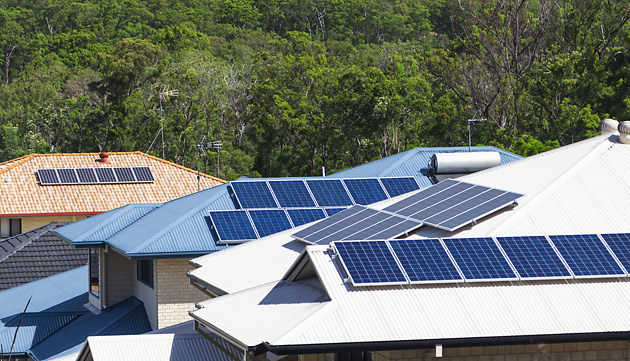

Network operator AusNet Services has canvassed the imposition of hefty connection fees – in the “hundreds of dollars” – for rooftop solar installations in Victoria if they cause the need for grid upgrades.
The proposal arose in a series of consultations that AusNet has conducted with a consumer panel, which is looking to the future of network charges.
The proposal has raised eyebrows and concerns in some quarters, because AusNet’s networks have a relatively low penetration of rooftop solar (mid to high teens in terms of per cent) compared to areas in South Australia and Queensland (more than 30 per cent) – so it should have additional capacity.
This, however, will likely to change should the state Labor government be returned and continue with its policy of providing generous rebates that aim to install 2.6GW of rooftop solar on another 650,000 homes in the state.
Currently, Victoria has around 1.4GW of rooftop solar, on about 300,000 homes.
AusNet says networks will be upgraded to cater for the extra rooftop solar, where there is an economic case to do so.
But where it does occur, it wants the new customers to pay for it.
It says customers who are in areas where augmentation is not economic will be “export limited” – meaning that they cannot export solar that they do not consume on-site to the grid – and will therefore not be charged for augmenting the network.

AusNet is not the first network to propose connection or additional charges for solar homes – the South Australia Power Network put forward a $100 fee a few years ago but withdrew it in the face of a public outcry.
That could mean limitation of exports, requests for voltage support or controlled load. Distributed energy above a certain export capacity could be allowed with dynamic management, where exports are reduced at times of constraint.
“This could allow customers to install larger systems and might be of interest to customers enrolled in virtual power plant schemes,” AusNet says.
It also suggests payments could be offered to customers where managed DER can provide network benefits such as reducing peak demand or improving power quality.
Giles Parkinson is founder and editor of One Step Off The Grid, and also edits and founded Renew Economy and The Driven. He has been a journalist for 35 years and is a former business and deputy editor of the Australian Financial Review.


